#Kerch
Explore tagged Tumblr posts
Text
Parents in Ketterdam probably tell their kids that Dirtyhands will take them away if they don't eat their veggies
#kaz is a little monster living under childrens beds at night#kaz brekker#dirtyhands#kazzle dazzle#six of crows#kaz#grishaverse#inej ghafa#shadow and bone#wylan van eck#kanej#jesper fahey#inej#ketterdam#kerch#crooked kingdom
629 notes
·
View notes
Text

He would
#six of crows#crooked kingdom#the grishaverse#grishaverse#leigh bardugo#shadow and bone#shadow and bone netflix#shadow and bone show#jesper fahey#jesper llewellyn fahey#ketterdam#Kerch#the dregs
670 notes
·
View notes
Text

View of Kerch Strait (1839) by Ivan Ayvazovsky. Orenburg Regional Museum of Fine Arts.
#ivan ayvazovsky#orenburg#paintings#museums#oil on canvas#landscape#ships#painting#europe#art history#artwork#history of art#oil painting#19th century art#19th century#coastline#coast#seascape#sunset#ukraine#kerch#black sea#ukrainian art#crimea#ukrainian artist#1830s#art#arte#kunst#kunstwerk
85 notes
·
View notes
Text
So there’s something about Pekka Rollins that has bothered me literally since I first read the books and I think about it every time I read them okay and it’s this line:
“Who is Pekka Rollins?” Matthias asked, turning the ridiculous syllables over in his mouth. Kerch names had no dignity to them.
And this catches me out every single time because Rollins is Kaelish. As far as the reader knows for definite, “Pekka Rollins” is a Kaelish name, not a Kerch name.
Now, don’t get me wrong, we’re of course aware that Matthias is very sheltered from understanding the global scene and may simply have assumed that Rollins is Kerch because he lives in Ketterdam and runs the Dime Lions (this is the only piece of information he knows about him at this time) but I think this is unlikely considering that it was on a mission to the Wandering Isle that he met Nina and we know that, although he doesn’t speak Kaelish, he knows how to recognise it well enough that he knew Nina was speaking Kaelish and not Kerch or Ravkan (at the time he was monolingual, as he would later only learn Kerch by necessity in Hellgate).
And thinking about the name “Pekka Rollins” it doesn’t sound all that Kaelish… does it? Our examples of Kaelish names include “Fianna” (Nina’s Kaelish pseudonym at the Ice Court), “Colm”, “Eamon” (Dime Lions member), and “Harshaw”, but not many others to my recollection. Kaelish names are inspired by Celtic languages and Celtic names, as far as I can tell usually with more Irish and Scottish Gaelic influences than Welsh, Cornish, or Breton (but please note I am by no means an expert and I sadly do not speak any of these languages), and we can see this trend in our examples. But can we see it in “Pekka Rollins”? Or does this name favour the structure of Kerch names? “Kaz”, “Per”, “Wylan”, “Alys”, “Hiram”, “Gert”, “Henrik”, “Jellen”, and so many many more examples, we are overflowing with examples of Kerch names (if you are wondering about more examples I’d recommend checking out the Grishaverse wiki there’s a full list on there of all the characters mentioned from each country, but note it doesn’t include any pseudonyms as far as I’m aware), that tend to favour more separated syllables and harsher consonant sounds than, say, “Fianna” where the name runs quickly together, pronounced to have two syllables when it would probably be said with three by someone Kerch who only saw it written down, with more emphasis on the “yah” sound of the “ia” than the double “n”?
So is it, in fact, possible that “Pekka Rollins” is a Kerch name? A chosen name, by a man who fled his home to restart his life in a new city, with a name that matched it? Is this supposed to imply yet another parallel between Pekka and Kaz?????
I have no idea, this is purely theoretical, but considering that they are narrative foils and we can draw many, many parallels between them and this line is always on my mind, it’s personally my favourite solution. If you agree/disagree or have a different theory, let me know! I love stuff like this so much, it’s so interesting to see what different people think or how we might have read certain details differently
#six of crows#grishaverse#crooked kingdom#leigh bardugo#kaz brekker#inej ghafa#jesper fahey#wylan van eck#nina zenik#matthias helvar#Pekka Rollins#Kerch#the wandering isle#Kaelish#world building#names#fantasy names#fantasy world#save shadow and bone#save the grishaverse#grisha#six of crows analysis#Soc analysis#Soc meta#six of crows meta#grishaverse meta#six of crows duology#assorted analysis - grishaverse
371 notes
·
View notes
Text

Kerch History Museum (Section 2B, Ketterdam Artifact Archives)
Poster advertising gambling bar 'The Silver Six', sister venue of the infamous 'Crow Club'. Both bars were known as havens for gang activity in Ketterdam, and some believe they were owned and operated by Dregs leader, Kaz "Dirtyhands" Brekker. Obtained from an anonymous donor 11″ x 17″ Artifact #24721
#seriously go check out the battery city history museum blog if you haven't yet#its so cool and is my entire inspiration for this series#should i make more??#anyways#six of crows#soc#crooked kingdom#crows#ketterdam#the dregs#kaz brekker#inej ghafa#kanej#jesper fahey#wylan van eck#wesper#nina zenik#matthias helvar#helnik#leigh bardugo#grisha#grishaverse#shadow and bone#kerch#mine
197 notes
·
View notes
Text
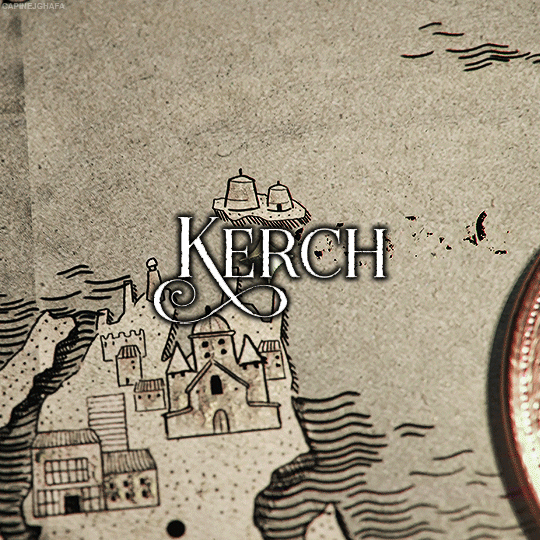

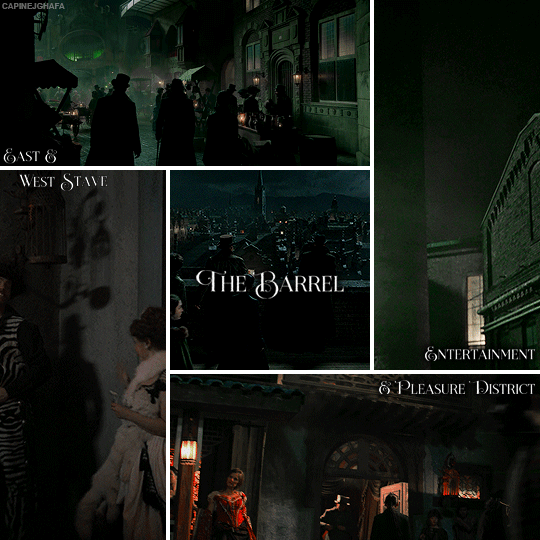
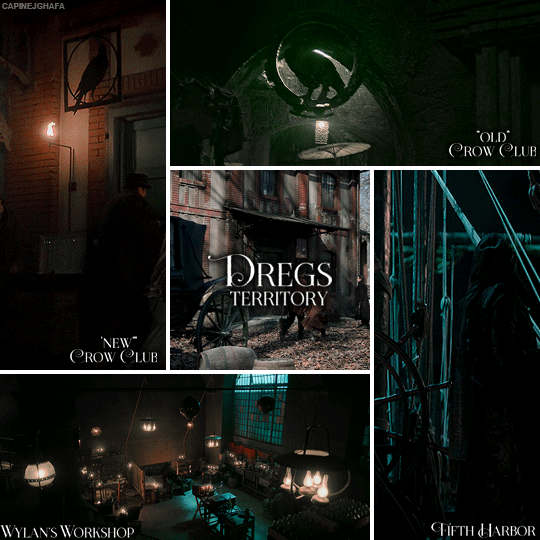

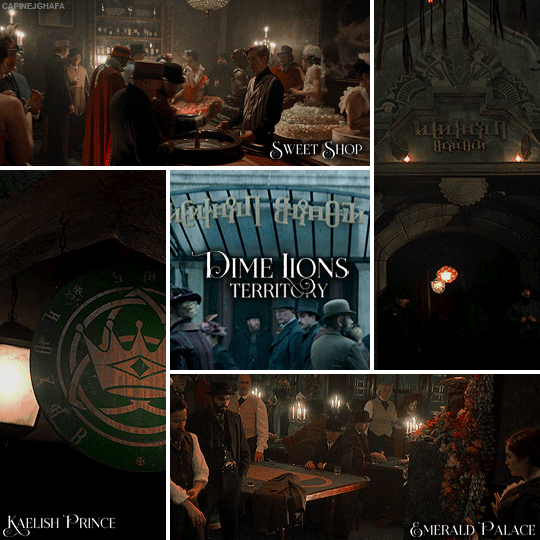

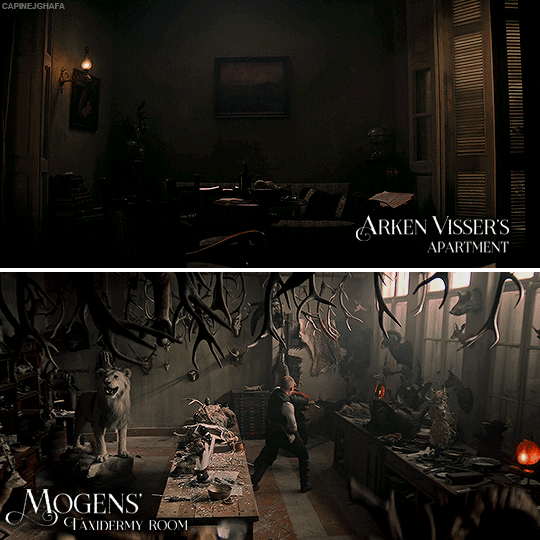
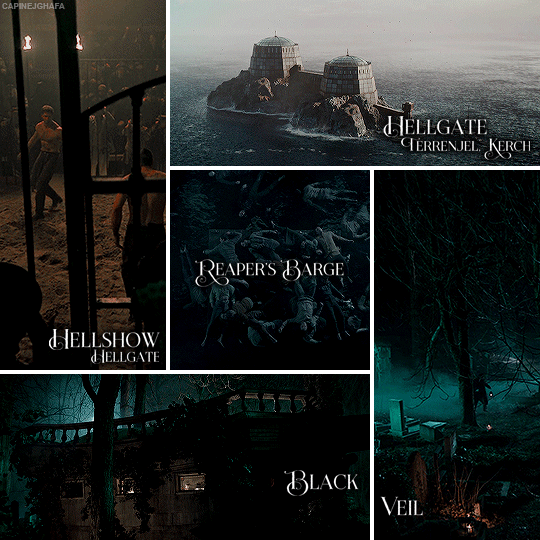
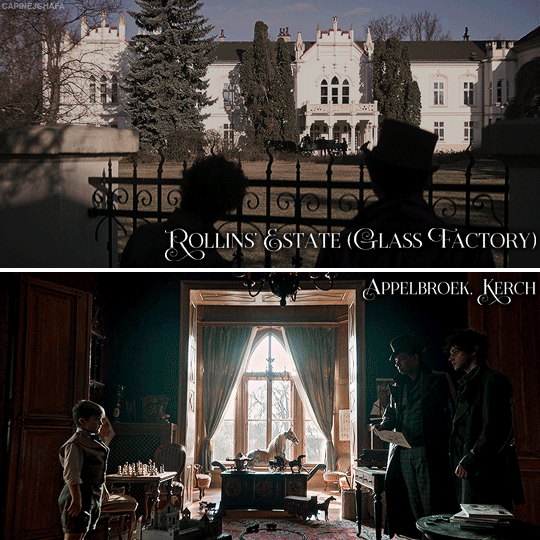
beginner's guide to kerch (island)
#sabedit#shadow and bone#shadowandboneedit#shadowandbonecentral#socedit#socdaily#mygifs15#the crows#six of crows#soc#userbecca#tusermich#janielook#userzhr#userghafa#useremerald#tusererika#ughmerlin#kerch#leigh bardugo
850 notes
·
View notes
Text
In a couple of days I will visit Ketterdam for the very frist time and im so so happy!!!🇳🇱🐦⬛

I'll see if I can find the crows somewhere🤫
#amsterdam#netherlands#shadow and bone#grishaverse#six of crows#ketterdam#kaz brekker#freddy carter#kazzle dazzle#save six of crows#inej gafha#amita suman#jesper fahey#kit young#nina zenik#danielle galligan#matthias helvar#calahan skogman#wylan van eck#wylan hendriks#jack wolfe#the crows#crow club#kerch
46 notes
·
View notes
Text

Mithridat Hill in Kerch, Crimea, modern-day Ukraine
Russian vintage postcard
#postkarte#postkaart#Kerch#Russian#ephemera#sepia#postcard#briefkaart#carte postale#postal#photography#Crimea#historic#Ukraine#vintage#tarjeta#ansichtskarte#photo#Mithridat#Hill
36 notes
·
View notes
Text
Yo, Kaz Brekker fans!
A ledger in Dutch is a ‘kasboek’, a Kaz book
43 notes
·
View notes
Text
— Absentee Empires: The Absence of Ottoman Influence in the Grishaverse and Its Potential Depth and Complexity
@aleksanderscult @siriuslyobsessedwithfiction @stromuprisahat @black-rose-writings Please share your thoughts on this—I’d love to hear your opinions!
One aspect of the Grishaverse that truly frustrates me is the absence of a nation inspired by the Ottoman Empire and the Arab world.
We have six well-defined nations—Ravka influenced by Imperial Russia, Fjerda drawing from Scandinavia, Shu Han reflecting elements of China and Mongolia, Kerch resembling the Netherlands, Novyi Zem based on the Americas, and the Wandering Isle inspired by Celtic cultures. But somehow, there’s no representation of the Ottoman Empire? It feels like a significant oversight, especially considering the empire's substantial power during the 16th century and its enduring influence into the 18th and 19th centuries, even amidst its decline.
While the Grishaverse hints at other “colonies” beyond the main nations, that doesn’t quite make up for the lack of an Ottoman-inspired culture. Just think about the richness it could have added! An Ottoman-inspired nation could have been filled with intricate politics, vibrant culture, and a fascinating history of diplomacy—especially with Ravka as a neighbor. The Ottomans had a complex and often contentious relationship with Imperial Russia, which included both trade and warfare. Imagining Ravka’s brooding intensity interacting with a nation influenced by Ottoman culture could have created such a thrilling dynamic, rich in both conflict and collaboration.
At first, I thought maybe some elements of Ottoman culture were reflected in Shu Han. But it’s pretty clear that Shu Han is primarily inspired by Mongolian and Chinese influences, making that connection a bit of a stretch. This feels like a missed opportunity, considering the Ottoman Empire was vast and influential, controlling significant parts of Southeast Europe, Western Asia, and North Africa. At its height, it was one of the world’s most powerful empires, playing a crucial role in European and Middle Eastern politics.
The potential for conflict between Ravka and an Ottoman-inspired nation would have been especially compelling. The 18th and 19th centuries saw numerous wars between the Ottoman Empire and Russia, primarily over territory in Eastern Europe and the Black Sea. These Russo-Turkish Wars significantly shaped the geopolitical landscape of the region. Instead of a straightforward narrative, we could have seen intricate power dynamics where alliances constantly shifted, leading to moments of both tension and unexpected cooperation. Imagine the political intrigue and skirmishes we could’ve witnessed…Instead of a simple “Good vs. Evil” narrative, we could have had layers of complexity, like “Who’s backstabbing whom today?” or “Are we trading grain or are we going to war?!”
But despite their military conflicts, the Ottoman Empire and Imperial Russia maintained a complex relationship that involved significant trade. As neighbors with intertwined economies, they exchanged goods like grain and textiles while competing for influence. A similar relationship in the Grishaverse could have added depth, showcasing how economic interdependence can exist alongside rivalry.
Additionally, the relationship between the Ottoman Empire and Fjerda could have been more diplomatic and friendly, especially given the historical context of increased interactions between the Ottomans and Scandinavian powers. The Danish and Swedish crowns sought to establish formal relations to protect their trade interests and gain support against regional rivals like Russia and Poland. For example, during the Great Northern War, Sweden sought support from the Ottomans against Russia. Although no significant military alliance was formed, the prospect of cooperation was explored. Diplomatic missions often resulted in the exchange of knowledge about military tactics, geography, and culture, enriching both sides’ understanding of each other. The relationship between the Ottoman Empire and Scandinavian countries was multifaceted, involving trade, diplomacy, and cultural exchange that could have deepened the tension between Ravka and the Ottoman-inspired nation. You know the saying, "the enemy of my enemy is my friend"? The Ottoman nation would have taken that to heart!
Finally, an Ottoman-inspired nation might have treated Grisha in a way that reflects the Ottoman Empire’s approach to its minorities, offering some autonomy under a millet-like system but with enough restrictions to keep everyone on their toes. You know, like “You can have your own laws, but only if you don’t annoy us.”
In conclusion, the absence of an Ottoman Empire or Arab-inspired nation in the Grishaverse represents a missed opportunity to enrich the narrative with the complex dynamics and vibrant cultures that characterized these historical realms. The interplay between an Ottoman-inspired nation and Ravka could have introduced captivating political intrigues, cultural exchanges, and historical rivalries that would elevate the storytelling. The rich history of the Ottoman Empire—its intricate relationships with neighboring powers, its approach to trade, and its treatment of minorities—offers a wealth of material that could have added depth and complexity to the Grishaverse.
Ultimately, incorporating such a nation could have not only enhanced the world-building but also provided a platform to explore themes of power, identity, and coexistence in a compelling way, making the Grishaverse an even more engaging and multifaceted universe.
Any comments or opinions are appreciated it !!!
#idk everytime I re-read the books#or even watch the show#I think of this#and the missed opportunities#grishaverse#grisha trilogy#shadow and bone#the crows#the darkling#nikolai lantsov#kaz brekker#ravka#fjerda#shu han#kerch#leigh bardugo#aleksander morozova#general kirigan#alina starkov#genya safin#grishaverse meta#ruin and rising#siege and storm
94 notes
·
View notes
Text
a trip to ketterdam would cure my depression
56 notes
·
View notes
Text
i’ve always wondered if Leigh Bardugo ever drew inspiration from the Arnolfini portrait for Jan van eck and Alys. obviously his name is an allusion to the artist Jan Van Eyck, but the fact that the man in the picture is eerily like Van eck, the woman is young and pregnant, and she has a dog…

#kaz brekker#six of crows#inej ghafa#six of crows duology#grishaverse#leigh bardugo#books#kanej#shadow and bone s2#six of crows fanart#crooked kingdom#jan van eyck#jan van eck#alys van eck#wylan van eck#wylan hendricks#wylan hendriks#nina zenik#matthias helvar#jesper fahey#ketterdam#kerch
41 notes
·
View notes
Text
Listen we all know Belendt exists mostly cuz it would be too embarrassing for Kerch to have only one city, but give these guys a 100 years and they will play the most INSANE football derbies against Ketterdam's football club, I'm sure
#Ajax Ketterdam vs Sparta Belendt except these wouldn't be the names cuz there is no Greek country in GrishaVerse#six of crows#grishaverse#crooked kingdom#leigh bardugo#ketterdam#kerch
29 notes
·
View notes
Text
Fun fact!
I feel like I know Six of Crows and Crooked Kingdom inside out and back to front; I’ve read them somewhere around 20 times each, I have written multiple analyses of them, I have actively studied the map of Ketterdam for the purposes of accuracy in both analyses and fic writing…
…And I was today years old when I realised that the Lid is called the Lid because it’s a straight road that’s literally on top of the Barrel. Like it is the Lid. I just -
It even makes symbolic sense because it’s the ‘classiest’ of the gambling dens and it’s where men like Smeet go to feel adventurous when it’s not actually dangerous like the Barrel is and it’s literally on top of the rest of the Barrel like the classism message is so loud I can’t believe myself rn
#how did I…#i don’t even know#grishaverse#six of crows#crooked kingdom#leigh bardugo#inej ghafa#kaz brekker#jesper fahey#nina zenik#wylan van eck#matthias helvar#kanej#Wesper#helnik#ketterdam#Kerch#grisha#soc duology#six of crows duology#six of crows fandom
612 notes
·
View notes
Text

Kerch History Museum (Section 2B, Ketterdam Artifact Archives)
Photograph of Jesper Fahey, partner of merchant Wylan Van Eck and infamous former member of the Dregs. Fahey spent years working for Kaz "Dirtyhands" Brekker and was thought to be his right hand man, hence why many have theorised that Brekker was able to influence aspects of the stock market while Van Eck was in power. Although Fahey claimed to have renounced his old way of life as he entered a relationship with Van Eck, rumours of his association with various gang activity continued for many years into their marriage. The photo is thought to have been taken somewhere in rural Novyi Zem, however the anonymous donor claimed it was found in a Ketterdam mansion. Obtained from an anonymous donor 3.4" x 3.1" Photographer Unknown Artifact #24386
#inspired by the battery city history museum#six of crows#soc#crooked kingdom#ck#shadow and bone#sab#grisha#grishaverse#leigh bardugo#crows#the crows#jesper fahey#wylan van eck#wesper#kaz brekker#inej ghafa#kanej#nina zenik#matthias helvar#helnik#the dregs#ketterdam#kerch#novyi zem#mine
191 notes
·
View notes
Text
“Per Haskell didn’t buy you. He paid off your indenture. That means you owe him money. A lot of it. But it’s a real contract. Here,” he said, removing Heleen’s document from his coat. “I want you to see something.” “I don’t read Kerch.” “It doesn’t matter. See these numbers? This is the price Heleen claims you borrowed from her for transport from Ravka. This is the money you’ve earned in her employ. And this is what you still owe her.” “But … but that’s not possible. It’s more now than when I got here.” “That’s right. She charged you for room, board, grooming.” “She bought me,” Inej said, her anger rising despite herself. “I couldn’t even read what I was signing.” “Slavery is illegal in Kerch. Indentures are not. I know this contract is a sham and any thinking judge would, too. Unfortunately, Heleen has many thinking judges in her pocket. ... ”
Kaz × Inej; Six of Crows- Chapter 25 (Leigh Bardugo)
And that's just indenture in general. I wonder how favourable would be such "bargain" to subhuman creatures like Grisha, who have basically no legal support anywhere in their world.
#Grishaverse#SoC Chapter 25#Kerch indenture#slavery in Grishaverse#Kerch#Heleen van Houden#Inej Ghafa#Kaz Brekker#POV: Inej#grishanalyticritical#Six of Crows#Six of Crows duology#V#books#quotes#Leigh Bardugo
38 notes
·
View notes